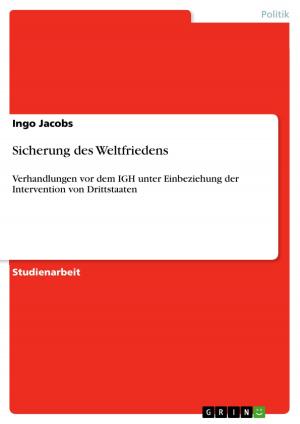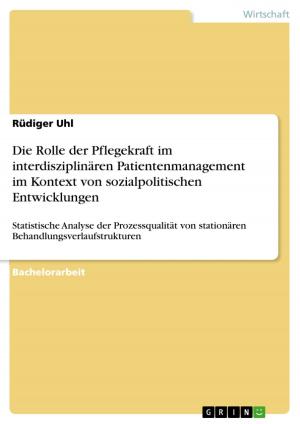German-Polish Relations. Analysis of the Past, Current and Future Trade Relations
Business & Finance, Economics, International| Author: | Eva Schruff | ISBN: | 9783656965619 |
| Publisher: | GRIN Verlag | Publication: | May 21, 2015 |
| Imprint: | GRIN Verlag | Language: | English |
| Author: | Eva Schruff |
| ISBN: | 9783656965619 |
| Publisher: | GRIN Verlag |
| Publication: | May 21, 2015 |
| Imprint: | GRIN Verlag |
| Language: | English |
Seminar paper from the year 2013 in the subject Economics - International Economic Relations, Berlin School of Economics and Law, course: International Economics, language: English, abstract: This term paper explores the effect of culture on international business. In order to do so, it first evaluates the influence of national culture and then the influence of corporate culture on international management. In the end it presents and analyzes a new framework which argues that these two types of culture interrelate and that both shape international management practices. In 2010 Wal-Mart Inc. has been the world's top retailer with revenues of US$ mil 405,046. However, they have never managed to establish Wal-Mart Germany since they have entered the market in late 1997. They left the market with huge losses in 2006. 'In Germany, analysts say, Wal-Mart never got traction in a market characterized by unrelenting price competition, well-established discounters and the cultural resistance of German shoppers to hypermarkets, which sell fresh vegetables a few aisles away from lawn mowers.'
Seminar paper from the year 2013 in the subject Economics - International Economic Relations, Berlin School of Economics and Law, course: International Economics, language: English, abstract: This term paper explores the effect of culture on international business. In order to do so, it first evaluates the influence of national culture and then the influence of corporate culture on international management. In the end it presents and analyzes a new framework which argues that these two types of culture interrelate and that both shape international management practices. In 2010 Wal-Mart Inc. has been the world's top retailer with revenues of US$ mil 405,046. However, they have never managed to establish Wal-Mart Germany since they have entered the market in late 1997. They left the market with huge losses in 2006. 'In Germany, analysts say, Wal-Mart never got traction in a market characterized by unrelenting price competition, well-established discounters and the cultural resistance of German shoppers to hypermarkets, which sell fresh vegetables a few aisles away from lawn mowers.'















